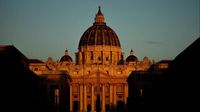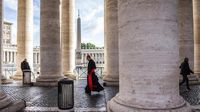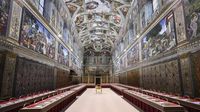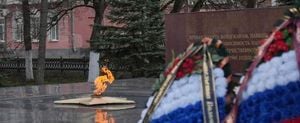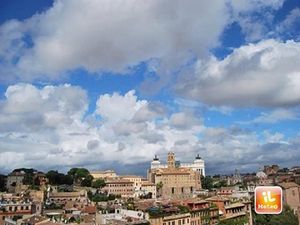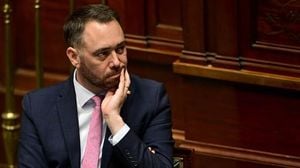On Wednesday, May 7, 2025, the Catholic Church marks a significant moment as the conclave to elect a new Pope begins, ending the period known as Sedisvakanz following the death of Pope Francis. The day kicks off with a solemn mass at 10:00 AM in St. Peter's Basilica, led by Cardinal Giovanni Battista Re, before the 133 eligible cardinals retreat to the Sistine Chapel to make a historic decision.
As the clock strikes 4:30 PM, the cardinals will enter the Sistine Chapel, where they will remain in strict secrecy until a new head of the Catholic Church is chosen. This conclave is particularly notable as it includes cardinals from all over the globe, reflecting a diverse array of perspectives and experiences. For this election, only cardinals under 80 years old are permitted to vote, emphasizing the importance of youthful insight in the church's future direction.
The process of selecting the 267th Pope is steeped in tradition and ritual. The cardinals will cast their votes in a series of ballots, with a two-thirds majority—89 votes—required for a candidate to be elected. The first ballot is scheduled for the evening of May 7, and if no decision is reached, subsequent votes will take place up to four times a day starting Thursday, May 8, 2025. In the event of unsuccessful votes, the ballots will be burned, with black smoke signaling that no Pope has been elected yet, while white smoke will announce the election of a new Pontiff.
Among the favorites for the papacy is Cardinal Pietro Parolin, the 70-year-old Secretary of State, who is seen as a strong candidate to continue the reforms initiated by Pope Francis. His candidacy has drawn attention not just for his experience but also for the implications of having an Italian Pope for the first time since 1978. Other notable candidates include Cardinal Matteo Zuppi, the Archbishop of Bologna; Cardinal Luis Antonio Tagle from the Philippines; and Cardinal Jean-Claude Hollerich from Luxembourg, each bringing unique visions for the church's future.
In the lead-up to the conclave, discussions among the cardinals have reportedly focused on pressing global issues, including conflict resolution in Ukraine and the Middle East, as well as reforms regarding abuse legislation. Beate Gilles, General Secretary of the German Bishops' Conference, expressed hope that the new Pope would foster a "healing decentralization" within the Catholic Church, emphasizing the need for the church to respond to cultural changes and societal needs.
As the cardinals prepare for the conclave, they will reside at the Vatican's Santa Marta guesthouse, where they will be cut off from the outside world. This arrangement includes strict rules against electronic devices and outside communication, ensuring that the cardinals can deliberate and vote without external influence. The atmosphere is one of intense focus, as the cardinals are fully aware of the significance of their task: selecting a leader for over 1.3 billion Catholics worldwide.
The conclave's proceedings are shrouded in secrecy, with the famous invocation "Extra omnes" marking the moment when all non-eligible cardinals must leave the Sistine Chapel. Once inside, the cardinals will take an oath of confidentiality, promising to keep the proceedings private. The first ballot could very well take place on the evening of May 7, with expectations set for a potentially lengthy process of deliberation.
Historically, conclaves can vary dramatically in length. The shortest conclave lasted just a few hours, while others have extended for weeks. Cardinal Gerhard Ludwig Müller, one of the participating cardinals, has prepared for a conclave that could last five to six days but acknowledges that the outcome could be decided much sooner, depending on the dynamics within the group.
As the world watches, the anticipation builds around the Sistine Chapel. The chimneys will serve as the only communication with the outside world, with the smoke signaling the results of each ballot. The first signs of black smoke will indicate that the cardinals have not yet reached a consensus, while the appearance of white smoke will herald the announcement of the new Pope with the traditional proclamation, "Habemus Papam!"—"We have a Pope!"
Once a new Pope is selected, he will be presented to the world from the loggia of St. Peter's Basilica, where he will offer his first blessing, "Urbi et Orbi"—"to the city and to the world." The new Pope's election will not only shape the future of the Catholic Church but also influence its role in global affairs, particularly in addressing social justice, environmental concerns, and interfaith dialogue.
As the conclave begins, the eyes of the faithful and the curious alike are set on the Vatican, awaiting the emergence of a new leader who will guide the Catholic Church through the challenges of the modern world.
